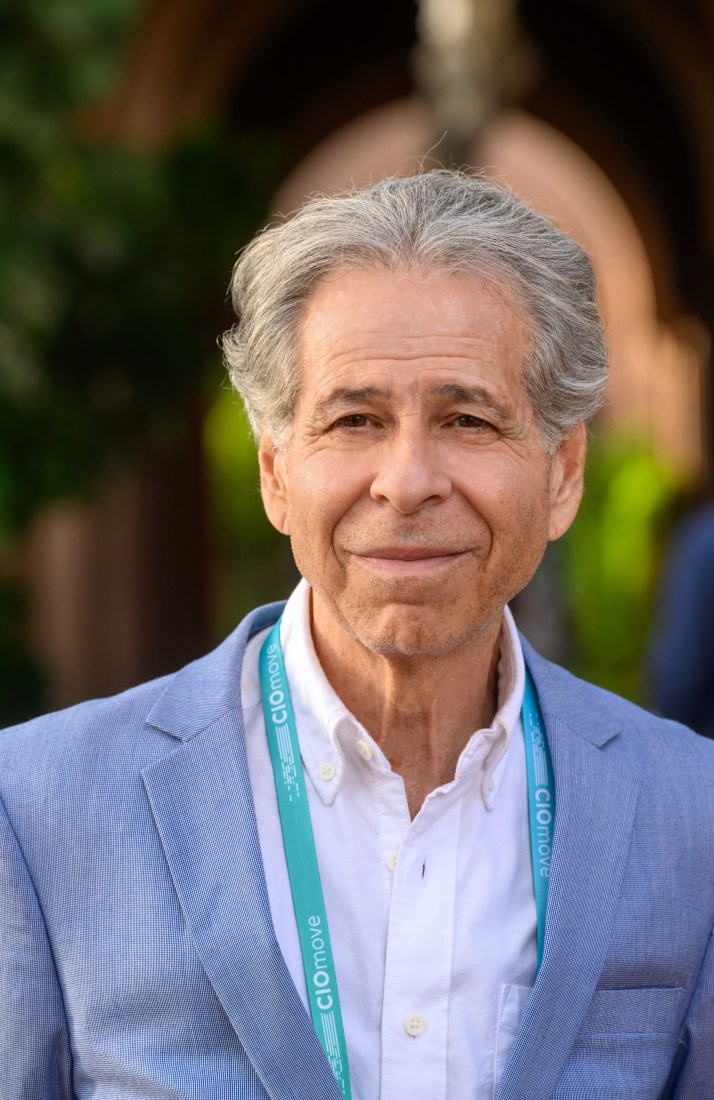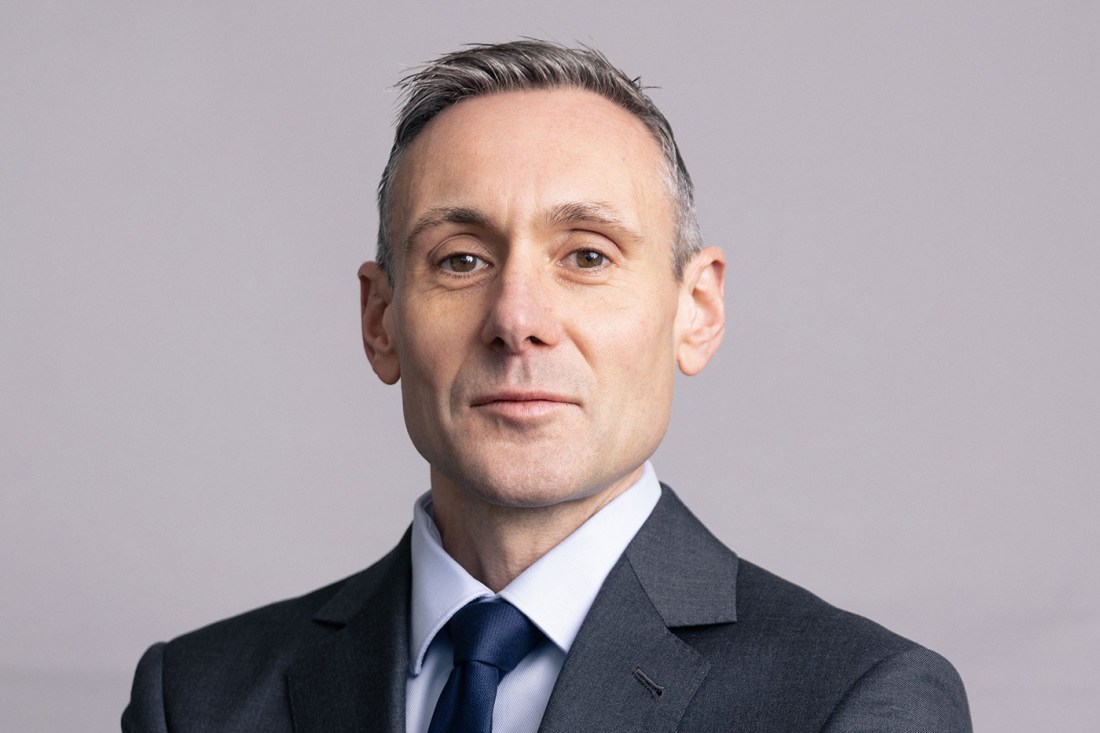Northeastern’s own version of ‘Shark Tank’ is helping create the next generation of C-suite executives
As part of the 15-month course, students come up with a business plan to either roll out a product internally in their company or place it into the open market.

LONDON — Armed with their business idea, the senior managers brace themselves. They are about to walk into a room full of some of the most experienced executives in their field and they need to deliver a hard and quick sell.
If this were the reality TV program “Shark Tank”— or “Dragons’ Den,” as the United Kingdom version of the show is known — this would be the moment of truth, the big pitch to the investors.
“That is the analogy,” says one of the “sharks,” Sarah Diamond, who was global managing director of financial services at IBM before retiring two years ago. “You sit there as a surrogate investment board. You are thinking, does this make sense to me? Is this valid? Theoretically, would I put my money into it?”
The people trying to impress the would-be investors are Northeastern University students undertaking the Strategic Technology Leadership graduate program.
The students, as course leader Art Langer explains, are high-flying employees who want to or have just made it into the so-called “C-suite” — positions like chief information officer, chief technology officer or other senior corporate jobs with “chief” in front of the title.
Langer, an associate vice provost and professor of practice in Northeastern’s D’Amore-McKim School of Business, says, in his experience, those making the jump into such positions often are “not prepared for what that means,” particularly in terms of presenting ideas to the company’s board, managing large balance sheets and thinking strategically.
“When you walk into the C-suite … it is about ‘How do I influence the leadership?’” Langer says. “And what we have found is that so many people at these very senior positions have no experience doing this. Things like, how do I put together a real business plan? How do I pitch my ideas? How do I do [one of the] greatest oxymorons of all time, which is ‘say a lot in a little’?”

As part of the 15-month course, students come up with a business plan to either roll out a product internally in their company or place it into the open market. They have to launch a staunch oral defense of that idea to a panel of judges on three occasions — twice in person during four-and-a-half day residencies in London and Boston, respectively, and then a final time online.
Diamond says while the experience of appearing before this group of “sharks” or “dragons” can be “really intimidating,” the students “love the experience that they get.” She adds: “They clearly value the time spent. This is 20 to 30 minutes where they get undivided attention from people who have got a ton of experience.”
The crucial difference with the “Shark Tank” and this university experience is this isn’t about trying to produce soundbite putdowns or chew up a proposal for television entertainment. The idea is “not to trip people up” but to “help them improve,” Diamond says.
Diamond is one of almost 250 current and former chief information officers and technology executives who make up the global network inside Langer’s Center for Technology Management and Digital Leadership from which he picks the one-to-one mentors for each student.
The inaugural Northeastern course, which started in September, has 14 students, with each matched to a mentor who both volunteers their time and takes part in the grading process — an aspect of the role Diamond says she and her colleagues “take very seriously.”
Each student has to concoct three chapters as part of their business plan, working hand in hand with their mentor, with two online modules also taken in the summer that makes up their final major.
Langer explains: “When they meet with the students, the mentor can say, ‘I’m an expert in this area — I don’t like this section, let’s change it.’ And they can do that, as long as the chapter maintains its identification.”

Kate Silverman, the London-based interim chief technology officer at Ardagh Group, a global supplier of sustainable metal and glass packaging for massive brands like Coca-Cola and Budweiser, has Diamond as her mentor.
While Diamond is British, she permanently relocated to New York in 1985, so the pair speak fortnightly online.
“She’s really good at bouncing ideas off,” Silverman says, “not just from a project perspective but also from a career progression perspective. I’ve built up a really good relationship with her and one that I hope will continue.”
Silverman was recently appointed to her interim role and found that, having come from a security background, she needed extra skills when it came to dealing with the board or deciphering financial spreadsheets.
With the course almost half-way through, she says that it has helped prepare her for life in the C-suite.
“Some of the key things that I’ve taken from this is about understanding your political landscape,” she says. “If you’re trying to sell a project, whatever that project might be — it might be an organizational change, it might be a digital transformation — it is understanding who you need to talk with to get them to buy into that change. So I think the stuff that we are learning is fundamental to that strategic oversight.”
The course has also touched upon getting to grips with the transforming impact that artificial intelligence is likely to have on how businesses operate, Silverman adds.
“There are key fundamental things that, regardless of whether you are a chief information officer, a chief finance officer or a chief security information officer, are going to be really useful,” she says. “I absolutely think that stuff that I’ve learned here, whatever road my career takes, will help me.”
Featured Posts
After completing the program in 2017, Mark Hutchison soon was appointed a chief information officer with former employer Deutsche Bank and is now Scotiabank’s European CIO. He has since been roped in by Langer to mentor students on the course.
Hutchison says he enjoys working with his mentee to help make their business plan “successful” in order to “get that funded, help them execute it and then deliver value to their organization.”
The senior finance sector figure took part in the London residency in January when the students had to make their first defense of their business plan to Langer’s panel of judges made up of executives. “The energy of the students was amazing,” Hutchison remembers. “It is just great … getting stimulated by a whole load of different experiences — and meeting the other mentors is also amazing.”
The best example of Hutchison’s enthusiasm for the impact the program has is witnessed through the fact he continues to recommend students for the course.
One of this year’s participants, Monika Kot from Scotiabank, was put forward by Hutchison. Kot is senior manager in front office technology at the Canadian bank’s U.K. headquarters — with her responsibilities covering London, Dublin and parts of Asia — and has her eye on progressing up the chain.
She says being taught by people like Craig Cuyer, the global CIO at U.S. communications company Omnicom Group, means students are being imparted not only with theoretical knowledge but are also learning from those with “practical and pragmatic knowledge and experience of senior technology leadership.”
For Kot, she feels learning to juggle being a parent of two, her day-to-day job and her studies has made her a “better leader” in the workplace, improved her delegating skills and helped her to see the big picture when it comes to making improvements that can benefit Scotia.
“After a few months, I started realizing how much I’ve gained from the course,” she says. “I began to understand that it is truly changing my relationship not just with my work, but it overall is improving my wellbeing and the satisfaction I gain from my work. So these were clear benefits of enrolling on the course.”
In fact, Kot felt it was “a shame that this is going to last less than a year-and-a-half” and used her business plan to set about creating an app that can help those on the course and fellow tech practitioners to continue to stay in contact and network over the long-term.
Kot and the rest of her class will gather at Northeastern’s Boston campus in September to defend the first two chapters of their three-part business plan in front of a second panel of judges.
By the third online panel in December, Langer says the students will “have to defend the whole thing” to a virtual room of mentors gathered from across the world and are only allowed one PowerPoint slide as an aide.
Langer, a former entrepreneur before becoming an academic, says these oral defenses — something he believes is a unique feature of the program — is about giving these senior employees “critical love” to help them deal with the pressures of working in some of their firm’s highest positions.
“There’s no filming, the door is closed,” he says. “And guess what? For the first time in their lives, they get dead honest, constructive feedback.”
He continues: “They want to be in the C-suite and they aren’t ready. This trains them and gives them that readiness. It is a comprehensive program that builds confidence and gives honest feedback in a safe environment. It is critical and direct.”










